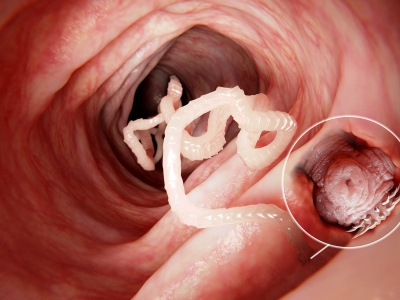
A parasite is an organism that lives in another organism, called the host, and often harms it. It depends on its host for survival.
The parasite uses the host’s resources to fuel its life cycle. It uses the host’s resources to maintain itself.
Parasites vary widely. Around 70 percentTrusted Source are not visible to the human eye, such as the malarial parasite, but some worm parasites can reach over 30 meters in length.
Parasites are not a disease, but they can spread diseases. Different parasites have different effects.
There are many types of parasite, and symptoms can vary widely. Sometimes these may resemble the symptoms of other conditions, such as a hormone deficiency, pneumonia, or food poisoning.
Parasitic infections cause a tremendous burden of disease in both the tropics and subtropics as well as in more temperate climates. Of all parasitic diseases, malaria causes the most deaths globally. Malaria kills more than 400,000 people each year, most of them young children in sub-Saharan Africa.
Picture Credit : Google



